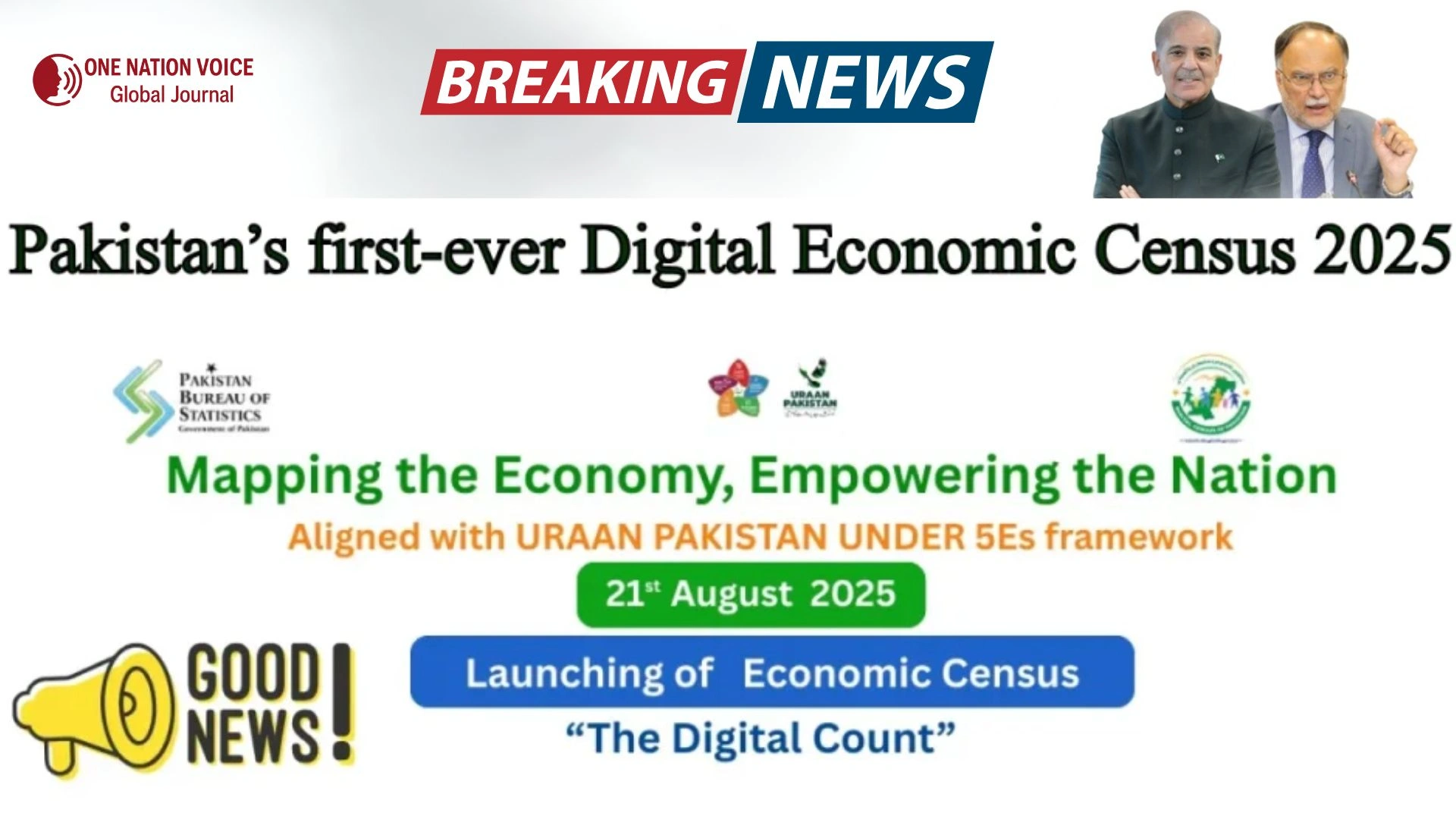Pakistan Launches First Ever Digital Economic Census

Pakistan’s finally jumped into the 21st century with this: its very first Digital Economic Census. Took ‘em long enough, right? The government’s making a big deal out of it Planning Minister Ahsan Iqbal cut the ribbon, the Pakistan Bureau of Statistics is patting itself on the back, and everyone’s promising that this is going to make the country smarter, more transparent, and actually able to plan for the future. Imagine that.
For a place where data usually means a pile of dusty files or some guy’s best guess, this is massive. But what’s it really mean for the average person? Or the thousands of businesses hustling out there, half of them probably off the books?
Let’s break it down the real way.
So, What’s This Census Actually About? And Why Should Anyone Care?
The digital census isn’t just a headcount for businesses. It’s about figuring out what’s actually happening in Pakistan’s economy, on every street and back alley. They geo-tagged over 40 million buildings (yep, that’s a lot of Google Maps pins), and they tracked down 7.2 million economic entities. Each one got an industrial code — so whether you’re running a bakery or a bootleg computer shop, you’re on the radar now.
This matters for a bunch of reasons:
- Suddenly, the shadow economy isn’t so shadowy.
- The government can stop playing darts blindfolded and actually target policies.
- Maybe resources won’t get funneled to the same old places.
- Small businesses and women-led ventures? They might finally get a seat at the table.
Mind-Blowing Numbers from the Census
Seriously, the stats are wild:
- 10 million households are hustling for cash or running micro-businesses.
- 2.7 million are in retail, 88,000 doing wholesale deals.
- 23,000 factories are grinding away, plus 643K small production units.
- 825K retailers those folks keeping your corner store alive.
- They even counted 242K schools, 36,331 madaris, 11,568 colleges, and 214 universities. Basically, if you’re learning or teaching, you’re on the map now.
- Health? 119K facilities, 6,000 places of worship, everything’s been tagged.
This isn’t just for government geeks. This is the kind of info that changes where roads get built, where hospitals open, and where investment goes.
How Does This Help Businesses? (Spoiler: It’s Kind of a Big Deal)
If you own a business, especially one that’s never been “official” you kinda want to pay attention.
- You’re Seen, Finally
If you’re a tiny operation, being counted is the first step to being legit. That’s huge. - More Support Might Actually Happen
With real data, maybe government programs will finally reach the folks they’re supposed to. - Better Planning, Fewer Headaches
When officials know where business is popping off, you might actually get the infrastructure you need. - Sector-Specific Advocacy
Now, trade bodies can argue their case with actual numbers, not just vibes.
Don’t Get It Twisted: Common Misreads
Here’s where people mess up:
- Not All These Businesses Are “Official”
Just because they’re counted doesn’t mean they’re paying taxes or playing by the rules. - Urban vs. Rural: Not the Same Ballgame
Karachi and Lahore aren’t the whole country , rural micro-ventures are surging too. - Schools and Hospitals Are Part of the Economy
Don’t just look at shops and factories, education and health matter, big time. - Change Takes Time
More data doesn’t mean policies flip overnight. Patience. Or, keep pushing.
Picture This: Fatima the Baker Gets Her Moment
Imagine Fatima in Lahore. She’s been selling cakes out of her kitchen for years, never talked to a tax guy, probably never even thought about registering her hustle. Now? She gets counted. Suddenly, she can apply for a loan, sign up for training, maybe even get listed in a business directory. Doors open. Simple as that. And there are millions of Fatimas out there.
What Should Regular Folks and Officials Do With This?
Here’s the cheat sheet:
- Check out the census data, see what matters for your neighborhood or business.
- Tell your local shopkeepers to get formal, if they haven’t already.
- Use the numbers to back up your arguments for better schools, roads, clinics.
- Push for smarter policies that actually match what’s happening on the ground.
Wrapping Up: Is This a Revolution? Well, Sorta
Look, this isn’t just another government report destined for the recycling bin. For once, it feels like Pakistan is taking data seriously. If they play it right, this could light a fire under the economy, drag the informal sector into the daylight, and maybe even make life a little easier for the people actually doing the work. About time, honestly.
For more in depth coverage, expert analysis, and exclusive visuals, visit One Nation Voice . Join the conversation, explore our archives, and be part of a global community shaping tomorrow’s headlines.
For More Upcoming Update Stay With Us Onenationvoice.com
Disclaimer:
The views and opinions expressed in this article are exclusively those of the author and do not reflect the official stance, policies, or perspectives of the Platform.











